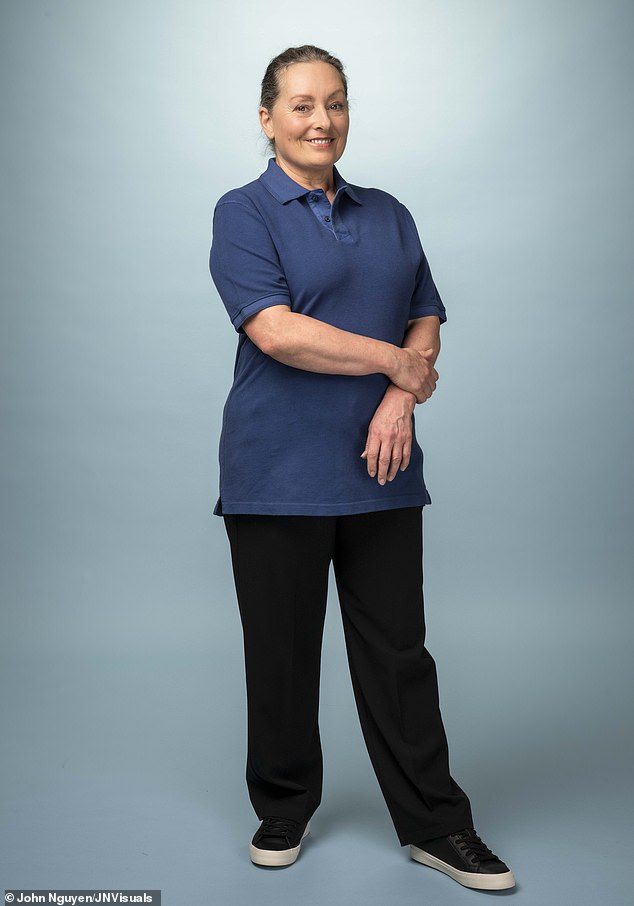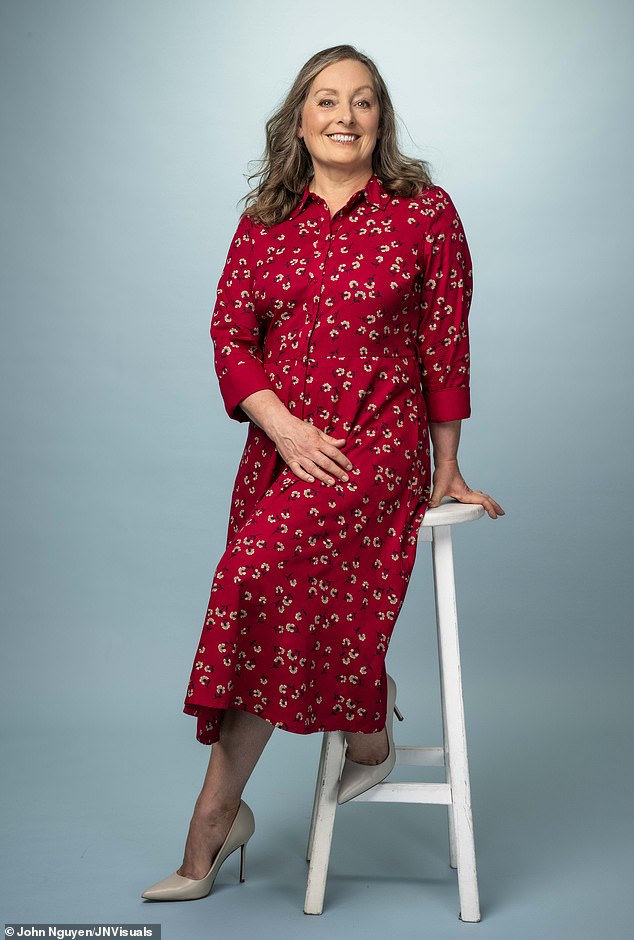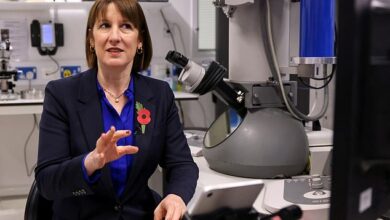The raw and beautiful truth about being a care home worker – where the emotions come thick and fast. A heart-warming tale from the coalface of human experience




The interviewer had been surprised to see me. ‘You’re not our typical applicant, you know? I mean, you’ve got a degree.’ ‘I’m sure I can do it though,’ I replied.
‘Oh, I don’t doubt that,’ she said, ‘but, really, why would you want to?’
My last job had been a senior role as a hospital dietitian. But after it became completely untenable – thanks to endless bureaucracy and intense mental overload – I was looking for work. Any work.
The last time I’d looked for casual employment had been so long ago the employer had tested my typing skills on a typewriter.
Now I was in my early 50s, married and with three children – aged 19, 20 and 22 – getting even the most basic of jobs appeared to require complex negotiations, applicant packs and questionnaires.

Kathryn Faulke works up to 14 hours a day visiting up to a dozen housebound elderly and vulnerable people in their homes through her job as an agency care worker
Then I’d seen the advertisement placed by Maggs, my interviewer: Agency care workers required.
In exchange for honesty, patience, compassion and reliability, Maggs said she would forgo experience and long application forms, and give me training – and pay £9.50 an hour.
For this, I’d have to commit to visiting a rota of elderly people in their own homes covering at least two evenings and every other weekend, on top of working weekdays.
I didn’t know it then, but this was to be a job which would see me working up to 14 hours a day, travelling up to 15 miles around inner city London, each shift visiting up to a dozen housebound elderly and vulnerable people in their own homes.
There, I would provide the most intimate care, changing incontinence pads, catheter bags, washing and feeding.
Regularly, I was these people’s sole contact with the outside world. I was determined at first to be nothing more than a functional carer. Caring without caring, if you like.
Precisely the opposite happened. It’s no exaggeration to say I fell in love with many of my ‘customers’, as the agency insisted I call them.
Day in day out, I felt the profundity of my connection with them and was privileged to share their lives.
From cutting their hair to sharing wobbly waltzes with them around their kitchens, to examining their most personal areas for pressure sores and holding their hands as they wept with loneliness, there was little I did not witness about these people who were, technically, strangers, but soon became friends.
For all the joy of caring for these wonderful men and women, I often wondered why hardly any value was placed on my job.
Taking into account largely unpaid travel time (payment is by the hour for the time you are with each customer, and just 25p per mile for travel), my domiciliary care work was one of the worst paid jobs in the country.
Shortly after I became a home carer, my daughter, then 21, got a job looking after pets when their owners were away. After one Bank Holiday, we compared our earnings. I had worked hard for 14 hours and was pleased to have earned £123, at the higher-than-normal Bank Holiday rate.
But my daughter had worked eight hours and earned £153. Arguably, therefore, the value of keeping 14 people safe and comfortable in their own homes on that day was deemed less than that given to feeding nine cats.
Little wonder, then, that Maggs had not been inundated with applicants. In a world where staff were in such short supply, the success of my application in 2019 was inevitable.
A fortnight later, I was back for training. My fellow trainees were all women, of various ethnicities, aged from just 19 to 53. There were supposed to be eight of us, but four hadn’t shown up.
We had workbooks to fill out – questions on how to administer medications, confidentiality and more – but if we didn’t know the answer, our trainer happily supplied it.
We then learned how to hoist. We loaded one another into a sling and used the freestanding hoist to transfer ourselves lumpily from floor to bed and back again. And that was it. I was a care worker.
The reality, though, is one doesn’t learn how to do care work from a workbook.
One learns about care work by shadowing and assisting other care workers – which I did for a fortnight. My co-workers were largely hard-working, dedicated experts, out in all weathers, when the majority of the population was still asleep or watching evening television.
After fulfilling their formal duties many would then spend their own time, unpaid, sitting with those who were lonely, accompanying people on hospital visits, or solving unscheduled problems from blocked sinks to overgrown lawns.
They moved people with different disabilities and frailties using specialised equipment, could spot weight loss or pressure sores before they’d become established and, most crucially, understood the importance of dignity, autonomy, a cup of tea and a good natter.
And yes, they dealt with bottoms. Lots of them.
My colleague Itzie – who was about 45, of Ghanian descent, and with a voice like honey – was with me on my first home visit, to show me how to care for someone in this most private of places, while somehow maintaining their dignity.
‘Give it time,’ she said wisely. ‘Soon you’ll find it’s nothing at all.’
And she was right. Some of my customers became utterly intertwined with my life, both because of their distinctive personalities and the length of time I cared for them.
Mr Radbert was one. I met him while I was training, and would then see him twice daily most days. A big man in his late-70s from Guyana, who lived alone, he had survived a stroke and was in the early stages of dementia. His sense of humour was firmly on the bawdy side – he often discussed how one day he was going to get Itzie, his favourite carer, into bed with him.

Agency care workers provide the most intimate care, changing incontinence pads, catheter bags, washing and feeding
It would take two of us to hoist him out of his often-wet bed, on to the loo and into the shower.
After that, he and I would be left alone. He would ask me to cook him eggs – because he thought they could cure baldness.
He also wanted to buy argan oil too so, no longer able to get there under his own steam and despite it not being on my task list, he’d persuade me to take him out of the house on an impromptu outing in his wheelchair to the health shop.
So my Mr Radbert mornings would see me rubbing argan oil on his shiny scalp, while he ate his eggs cooked according to his preference that day.
In return, he promised to give me his car. He had forgotten where it was, of course, but it was a sexy black BMW and it was definitely mine when we find it – just so long as I drive him back to Guyana first.
When I’d joke with him that I was going to make his daily shower good and cold to wake him up, he would laugh from somewhere down in his big belly.
‘Whoo-hoo-hoo! Don’t you go shrinking my equipment. You know my equipment is the biggest and the best!’
‘Mr Radbert!’ I’d say, affecting a shocked face. One day, Mr Radbert declared to me: ‘I’m famous, you know.’ ‘Really?’ ‘Soul singer. I was known as the Second Otis Redding.’ ‘Why don’t I ever hear you sing then?’
Mr Radbert looks scornful. ‘I can’t sing now. Not like then. The girls loved me. My God, those girls, whoo-hoo-hoo!’
‘We should put Otis Redding on in here,’ I say. ‘You’ve got a stereo. Is it working?’
‘Of course it’s working,’ he says, indignantly. ‘No CDs, though,’ he adds, sadly.
‘I’ll get some.’ He doesn’t believe I will – but I go home for lunch and force my son to search with me in every charity shop we can find for an Otis Redding CD.
That night, back at Mr Radbert’s, I whip out the CD. ‘Oh!’ he shouts. ‘I eat my hats!’
We put it on and Mr Radbert urges me to turn the volume full up. We sing at the tops of our voices. He knows every word.
I take his hands and we dance, we shout, we sweat, me jumping and him in the wheelchair moving from side to side, the drabness of his flat faded away in the glory of it all.
At last we stop, breathless, more with excitement than activity.
‘Whoo-hoo-hoo!’ Mr Radbert yells, his glasses in his lap. ‘I love you,’ he says. ‘I can’t walk, but the music makes me dance in my mind.’
When he dies of Covid, alone in hospital in 2020, I am winded with grief.
Bridget is a very different character, but equally as memorable. Diabetic, frail and with mental health issues including schizophrenia, she lives in a decrepit flat four floors up with no lift, and legs that are too infirm to manage the stairs alone.
Yes, I provide her with practical care – but it’s companionship she craves.
I see her three times a week, for long visits due to her extensive needs. She has few other visitors. The chiropodist calls every six months, and Mrs Flynn, an old acquaintance, visits on Bridget’s birthday. She never married or had children. She is very alone.
There is a view of green space from Bridget’s living-room window, but Bridget doesn’t care to look out of it because there are people in the green space enjoying themselves. She sometimes opens the front door and peers down onto the road instead. Her travels are largely restricted to kitchen, living room, hall and bathroom.
Despite the limits of her surroundings, Bridget and I still find much to be fascinated by.
We can become absorbed in junk mail, choosing which commemorative items we would send for if only we were mad enough to want any.
The ripeness of fruit is of great interest, pears being edible only at one particular point of maturity, and bananas needing to be watched for the day they become so overripe I must take them home and bring them back as cake.
Crane flies gather on damp patches on the windowsill outside the kitchen. We study them to see how they communicate.
I cut Bridget’s grey hair, and do my best to care for her feet, afflicted as they are by her diabetes and lack of movement.
They are real shockers: white, with dry, greenish scales. I have to look between the toes to make sure they are not fungal, to dry them thoroughly. This takes some doing. Mercifully, they are always clear.
Without me, who would Bridget have? People need companionship. It isn’t insignificant. It obliterates loneliness.

Kathryn says: We care workers are the ones who help pick up any broken pieces, for a fraction of the wage other medical professionals receive
Lack of companionship won’t kill you as quickly as lack of air, but it is as essential as oxygen to the human spirit.
Companionship is part of caring. But it is difficult to find the extra time to provide it.
Carers so often have to care without giving companionship. To care without properly caring.
Imagine a bus driver having to drive without properly driving. Or a cook having to cook without properly cooking. It’s laughable.
The simple touch of a hand can give so much, when you’re elderly and live alone.
William was just two years off his century, and thanks to his age was frail and vulnerable when I began caring for him in 2020, seeing him once a week for half an hour, in his sheltered housing block.
A former bricklayer, he had been married for over 60 years, until his wife passed away. He had been so long with her that his brain cannot help recreating her occasionally.
‘She floats around the kitchen,’ he said. ‘I like it when she’s here.’
On another visit, William told me, ‘Never touching anyone makes you feel as though you don’t exist,’ and after that I always held his hand while we chatted.
A few weeks later, I was drying dishes in the kitchen when I realised he’d crept up behind me.
As I turned, he took my right hand in his left, hooked his other around my waist and we bobbed about in a wobbly waltz for a few seconds before I towed him slowly back to his chair.
A subsequent visit gave me an awful shock. When I arrived in the morning, the flat was in darkness.
The outline in his bed was unmoving. Tentatively, I nudged him, sitting on the bed beside him. ‘Hey, you OK?’
‘Oh yeah,’ he murmured dozily. ‘God, you frightened the life out of me. Are you ill?’ ‘No, just tired.’
Eventually, he shuffled through to the living room, one hand on my arm and the other on his walking stick.
‘God,’ he said, ‘you don’t know what that did to me. Sitting next to a woman on a bed. What I wouldn’t give to lie down with a woman and have a cuddle.’
‘I’m married,’ I said. ‘Watch out! Does that feeling never go away?’
‘Never,’ he was vehement. ‘Can I tell you something? You won’t be offended?’
‘Go for it,’ I said, taking a comb to the thin strands of white hair on his scalp.
‘When I was young,’ he began, ‘I knew a woman who lived alone. Vera. She was in her 70s and she had the nurses come every day. She knew she was dying. I went to see her. I suppose I was about 25. And, you know what? She asked me to make love to her.’
I stopped combing and held my breath. ‘Of course, I was appalled,’ said William. ‘She seemed ancient. But, God, what did I bloody know at that age? She wanted to feel close to someone again before she died.’
He stopped speaking and stared at his hands. ‘And?’ I said. But William didn’t hear me. Or maybe he just pretended not to.
Weeks on, I braved the subject. ‘William,’ I say, ‘I want to ask you something. Did you… ?’ ‘Let’s just say,’ his words are quiet, ‘that those nurses who came every day said she suddenly looked very peaceful in the days before she passed away.’
‘At the time,’ he says, ‘it was strange. Something to be ashamed of, even.
‘But now I understand. Now I’m ninety-bloody-eight. No one thinks you feel things when you’re old. But you do.’
When you need the kind of care I provide, there is no one closer to you than your carer.
The occupational therapists come with their advice and equipment and go, leaving us carers to help people learn how to use it.
The physiotherapists come with their exercise plans, leaving us to find ways to fit them into our customers’ lives.
Dietitians come with their meal plans and supplement drinks and leave us to make and serve them.
Doctors diagnose and instruct the pharmacy to dispense medications and leave us to prompt and administer them.
Nurses wrap dressings and bandages and leave us to make sure everything remains clean and intact.
We care workers are the ones who help pick up any broken pieces – for a fraction of the wage other medical professionals receive.
It’s tough – but, it’s also a blessing. After five years I am still a care worker and can tell you, being as close as this to someone is a uniquely precious place to be.
It is a place where secrets are revealed and fears are shared and outrageous jokes are made that could not be told to anyone else.
It is a coalface of human experience. A place where feeling comes thick and fast. It is raw and beautiful.




